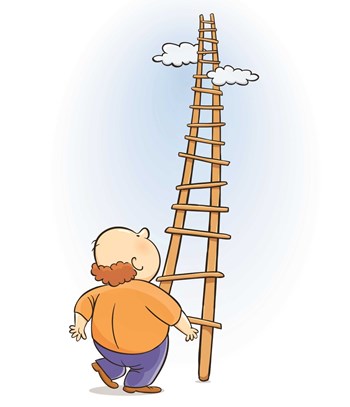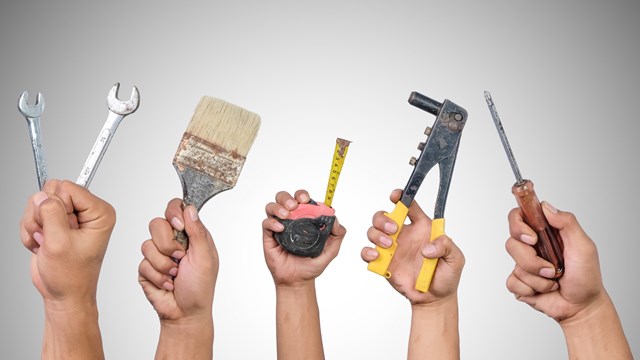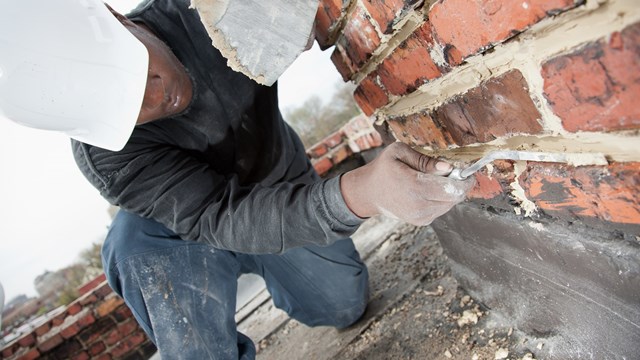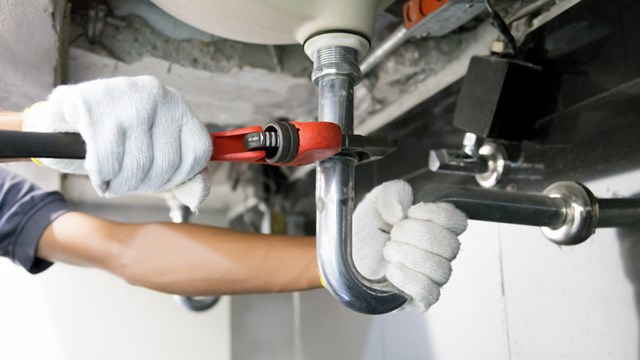
This country was founded over two hundred years ago with a heavy dose of independence and a strong “Do-It-Yourself” attitude. The DIY mindset, with roots in Europe and European culture, crossed the Atlantic Ocean with the earliest immigrants and became part of the American tradition of personal and community responsibility. Many of the first waves of settlers were expert craftsmen in their own right; they were the professionals and skilled tradesmen who needed to build a new country literally from the ground up. Those early settlers helped themselves and their neighbors build homes, businesses and towns. Barn raisings were community events where everyone showed up to work and then to socialize.
Check Your Governing Docs First
Now two centuries later the DIY mentality is still alive and well, but condo and co-op lifestyles require a hard look at who does what, how and when. Homeowners and condominium owners associations and property management companies provide an extra layer of governance and protection for residents who enjoy this type of community. There are also bylaws, Articles of Incorporation, and the Declaration of Covenant Conditions and Restrictions (CC&Rs) to be considered when repairs and major projects are on the drawing board.
Doing-it-yourself may not be the best course of action, and in the end DIY may not even be the least expensive way to handle maintenance and repairs. Even now in this post- recession climate, economic concerns and ways to save funds are only part of the equation. Boards will have to look at hidden costs and long reaching effects to determine the best course of action when a DIY project is brought to the bargaining table.
Bill Worrall is the vice president of client relations and business development for FirstService Residential in Dania Beach. He has a dozen years experience, and more than a few innovative approaches to property management.
FirstService Residential oversees approximately 350 condominium residential units, and another 250 units governed by HOAs. Worrall feels well-developed job descriptions are an excellent way to proactively manage questions and concerns about DIY versus calling in a professional. “When the board is reviewing jobs for the staff, an accurate job description, explaining duties and expectations is a must. A definitive job description makes it easier to determine what jobs should be out sourced or subbed out and which jobs can be safely managed in house,” he states.
Worrall finds standard maintenance and routine preventive care are the most typical duties handled by on-site staff. “Changing light bulbs, and preventative maintenance on equipment, are usual DIY duties, while specialized repairs and projects should be subbed out to the appropriate contractors. Anything requiring a permit would always be subbed out. Likewise anything requiring state certification would require a professional; elevator maintenance and repair is an example of the state of Florida’s requirements, and a Florida license is required for pool operators as well. If pool chemicals are mixed incorrectly, severe injury may result, and if proper levels of chemicals and temperatures are not maintained, illness and even death may result from the growth of harmful bacteria.
Preventative Maintenance Important
Worrall is an advocate of preventative maintenance, with programs designed to extend the life of equipment and furnishings and requiring less annual expenditure. He has seen some economic upturn in the last two years, but feels 2007-2011 were expensive years for most HOAs and condominium associations. Careful attention to prevention maintenance will show up in reduced cost and an improved bottom line.
Another proactive management tool used by Worrall and FirstService is the practice of hiring and training in-house advisors. “Having our own in-house staff members who knows how to obtain bids and proposals is powerful,” he explains. Worrall also likes to utilize successful maintenance supervisors as contractor managers. These managers can oversee all the contractors, making sure all needed licenses, and certifications—both state and local—are correct and up to date. “Our first duty is to protect our clients, and that begins with risk management,” he says.
Jane F. Bolin, Esq. is a managing partner with the law firm of PeytonBolin, PL, in Fort Lauderdale. “The reason that most associations use in-house staff for light maintenance and repair is for cost saving,” she explains.
Bolin agrees with Worrall that the projects best handled in- house are those that do not require a permit or license. “For example touching up paint, pressure washing common areas, cleaning the club house and facilities, or changing light bulbs and sweeping the pool,” she states.
Bolin cautions there are liabilities to be considered any time an association decides to do-it-yourself: if a permit or license is required, bring in a professional. “The association must have the proper insurance coverage for general business liability, property, and workers compensation and in some cases, additional insurance coverage options such as lost key coverage, business crime, glass breakage, and damage to tenant’s property.” Another major consideration when DIY is being considered is the warranty that may be involved, Bolin warns.
“Oftentimes manufacturers require the use of trained or otherwise specified contractors or warranties and guarantees may be void.” Bolin, like Worrall, feels strongly about using clearly stated job descriptions. She also recommends the use of The Florida Department of Business & Professional Regulation (DBPR) website (www.myfloridalicense .com) for verifying licenses and learning when licenses are required.
Matthew Zifrony of Tripp Scott Attorneys in Fort Lauderdale has 23 years experience managing homeowner association properties, and currently represents 200 HOAs. Zifrony cautions about do-it-yourself projects that will negate a warranty and cost more in the long run. “A project done in-house may be accomplished without pulling a permit. If a job is accomplished without a needed permit and a “do–over” is required, the project could end up costing double or more,” he says. Zifrony also cautions doing-it-yourself may create more of a liability, particularly if electrical rewiring or pool repair is involved.
Timeliness and cost savings are perceived benefits of DIY—a project done by in-house staff can be accomplished quicker, with more savings, and also with more privacy; as long as warranty and liability issues are carefully addressed beforehand.
Beware When Using Staff
Zifrony offers a hypothetical example of a project that appears to be simple maintenance but can backfire. “For example, what if the in-house handyman is asked to replace a few tiles or shingles on the roof, and slips and falls? The handyman is not licensed for roofing, and liability incurred can go literally through the roof. It is always better to check the HOA documents, and when in doubt use a licensed, bonded and insured contractor with the skills required to accomplish the job safely and correctly.
Zifrony advises boards to educate themselves on state, city and country requirements, and never sidestep pulling a permit when required. A larger and/or more complicated project will always require a licensed contractor.
Andrew Black, an attorney with the law firm of Kaye Bender Rembaum in Pompano Beach and Palm Beach Gardens, helps his firm manage approximately 800 communities including HOAs, condo associations and co-ops. The firm has offices in both Pompano Beach and Palm Beach Gardens, with properties in Dale, Broward, and Martine Counties. Black, like Zifrony, Bolin and Worrall does not generally recommend DIY projects other than minor jobs like replacing light bulbs, sweeping and removing trash. “The main advantage to DIY is not only cost savings but a better sense of control; the main disadvantage with DIY projects is exposure to liability,” explains Black.
Consult With Your Insurer
Black recommends boards fully discuss the size and complexity of any job being considered, and to understand the licensing and permitting requirements for the city, country and state. If DIY is being considered, Black would recommend a board consult with an insurance agent to understand the worst case scenario, and governing documents should always be reviewed. In Black’s experience, most residents will appreciate when procedure and policy guidelines are clearly established and followed. A board should strive to make a good business decision for the overall community and the individual residents.
While a spirit of DIY may be admirable on a personal and private basis, it is clearly a topic for close scrutiny when HOAs and condominium communities are considering anything other than the most minor jobs. Property management experts and property attorneys agree the problems may well outweigh the time and money saved by DIY projects. Fines may be imposed for failure to pull a permit, staff, residents or guest may be injured by work that is poorly or incorrectly finished, actual property may be damaged resulting in the need for more extensive repairs, warranties may be voided and finally liability issues may be expensive and detrimental to the entire community. A DIY project will not have any type of warranty, and if a do-over is required due to poor quality or the discovery of the need for a permit, any original savings will be lost.
Hiring licensed or certified individuals as part of the maintenance team may prove to be a saving factor, but those credentials must be renewed and updated on a regular basis so some built in expense has to be expected. Adequate insurance to cover any and all liability issues is also a must when a community is considering a DIY project, and the cost of upgraded or expanded insurance coverage may outweigh any DIY savings.
Overall, when projects are extensive, involve electrical, mechanical, or recreational work or improvements it may be best to call a professional. Check with state and local requirements on licenses, certifications, and permits, be sure your contractor is also bonded and insured. If a warranty comes with the package, the community is sure to benefit from a sound business decision, and an improved property.
Anne Childers is a freelance writer and a frequent contributor to The South Florida Cooperator.






Leave a Comment